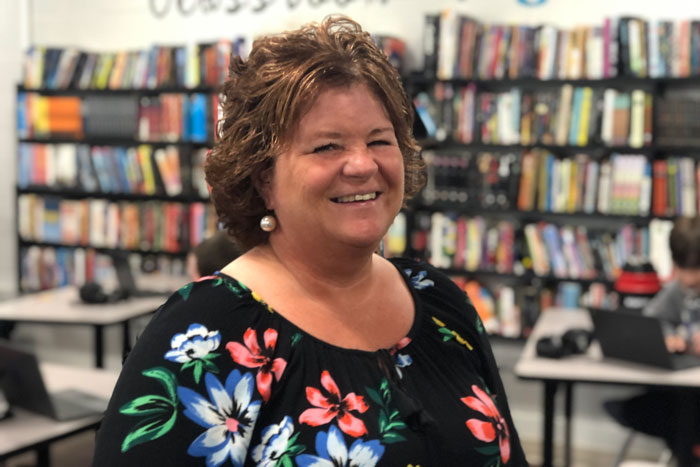Editor’s note: There’s no doubt that COVID-19 flipped education on its head, with educators facing many months of countless unanticipated challenges. Despite the many obstacles, teachers have seen some positives shine through in the form of lessons — or gifts — they’ve experienced as a result of being forced to try new things. School News Network has been sharing the experiences of educators from throughout Kent ISD. As the 2021-22 school year wraps up, today we share these perspectives from Forest Hills and Northview.
SNN: As an educator, what have you found to be lessons or gifts of the pandemic?
Northview High School Principal Mark Thomas
“It’s shown us that we have the ability to take on an obstacle and move through (it), because you really don’t have a choice. I think the pandemic forced us to be more flexible, more creative, to learn more things at the rate we wouldn’t have before, like technology.”
Having had practice doing assignments virtually, Thomas said, “the impact is knowing we may not need students in seats the same way, all the time. That helps them take more agency and ownership in their learning.”
“It also has probably created more flexibility across K-12 for teachers to do things in different ways. And it’s created empathy for each other’s roles.”
Christopher Thomas, autism spectrum disorder teacher at Forest Hills Eastern High
“The first few months were very difficult for our students. One didn’t come to any of the Zooms that first spring; he was having meltdowns every day because he loved to have his peers around and that was taken away so suddenly.
“When we got back, one student stayed home the rest of the year so I had to keep making online lessons. Sometimes it worked; sometimes it didn’t, like when his mom would leave the room and he would turn the sound off and go get a snack,” Thomas said with a laugh. “I had to come up with a plan to get him back (to the computer). And I had to teach the same concepts we were teaching in person but find different ways to help them when I wasn’t sitting right next to them. A lesson that would take 20 minutes normally would take 35 to 40 minutes. I couldn’t look away, and I had to be prepared. I had to learn to be more patient.”
Once buildings reopened for in-person learning, Thomas again saw how much his students depend on routine. While learning from home, he recalled, “they had to rely so much on prompting from their parents when we were online. When they came back I had to remind them over and over at first when the bell rang to get up and go to their next class.”
Overall, “I think they learned some more independence skills,” he said. “They were able to do more stuff on their own, which is a blessing.”
Amy Pallo, Forest Hills Eastern High principal
“The greatest takeaway on a staff, student and community level is an understanding of what we’re capable of. The way everybody was able to dig in and still be able to do things that we didn’t think we could, I’m so proud of.
“On a smaller scale, we learned there are ways to do things differently. Allowing kids flexibility has stuck in many instances. And everybody still seems to be thinking out of the box.”
As for teachers, Pallo said, “It’s a little bit harder to move out of what we’ve always known, but I think they feel more confident with taking chances. One of the things we had routinely done is our teachers scheduled mask breaks and would lead a walk outside. Our kids came back this year and asked if we could continue to (take outside breaks). I’m watching a class out my window right now.”
Kathy Vogel, Crossroads Middle School teacher
This is Vogel’s 32nd year teaching in the building, so she absolutely has perspective about shaking up aspects of her days that had become routine.
“When we had the kids on a hybrid schedule (last school year), it really made me reconsider some of the lessons I was teaching. I was able to hang onto what’s most important for them, and I don’t think I would have gotten there without being forced. Sometimes we do things in the classroom that meet the standards, or are things that we like that might not necessarily serve students well later on.”
She learned another lesson the week before, at the middle school’s first dance in 2 ½ years. “While it didn’t seem like a fun thing for me to do on a Friday after school,” she said with a laugh, “watching the kids, they were just having fun. Being able to do that after so much being put on pause, some of those traditions we lost for a while, you really realize the importance of them.”












